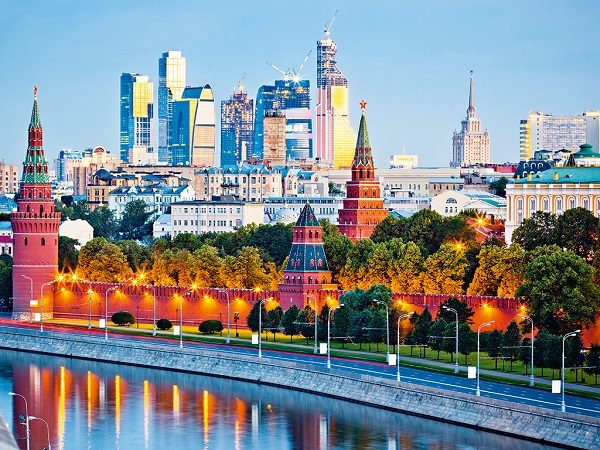Vi synes ærlig talt at det er tid for Moskva at sige tak til Washington for dets "række af sanktioner".
Premierminister Dmitry Medvedev mødtes igår med Putin for at diskutere en økonomisk rapport som vil blive præsenteret til Statsdumaen på onsdag - og trods Vestens ihærdige bestræbelser, så ser den økonomiske fremtid for Rusland særdeles lovende ud.
Kommentar: Denne artikel er delvis oversat til dansk af sott.net fra: Western sanctions allows Russia to take another economic victory lap
It's official: Western sanctions have allowed Russia to diversify and strengthen its economy. Thanks, guys:
A positive feature of our revenue last year is that non-primary, or non-oil revenue accounted for nearly two-thirds, or more precisely 64 percent of total revenue. This means that the structure of our economy is changing. Of course, this is linked to fluctuating oil prices. They have been growing slightly this year, and the economic structure is changing a little, but the overall direction is clear: non-primary revenues are growing, and primary revenues are decreasing. We need to maintain this course.We know that John McCain likes to yap about how Russia is a "giant gas station". It wasn't true then, and it's certainly not true now. The oil-and-gas sector accounts for roughly 16% of Russia's GDP, and before Washington implemented its ingenious sanctions, 52% of federal budget revenues.
That percentage has nearly halved.
Yes, thanks to a much-needed nudge by the West, things have ... changed.
Some other developments:
- "One important result, in particular, was that industrial production growth was up by 1.3 percent. This shows that our industry is picking up again, though this is the average growth."
- "The pharmaceutical industry, for example, has grown by nearly 24 percent. This is very important because our pharmaceutical industry assists in developing the production of modern medicines, including those classed as vital and most important. Around 70 percent of vital medicines are produced in Russia now. They are cheaper, as they are not purchased with foreign currency, and this industrial growth creates a general positive environment for development."
- "We see a similarly positive picture in agriculture, which posted growth of 5 percent last year. I think this is the consolidated result of the efforts the authorities have made over these past 15 years. The agricultural sector has undergone radical transformation over this time. It now feeds the entire country and has tremendous export potential. Modern investment is driving its growth. Most importantly, we see here how growth in one sector benefits development in other sectors. Spurred by growth in agriculture, farm machinery manufacturing is also developing. Production of farm machinery, combine harvesters and tractors was up by 60 percent."
- "Unemployment remains within manageable limits. It stood at 5.5 percent last year. This year, we expect it to be around 5 percent of the economically active population". (Compare to Europe's 10% or higher unemployment.)
- "Inflation, as we know, has also come down. It was 5 percent year on year, and this is an unprecedentedly low rate in Russia's recent history."




Kommentar: Se også: Russia's agriculture sector booming despite or thanks to international sanctions